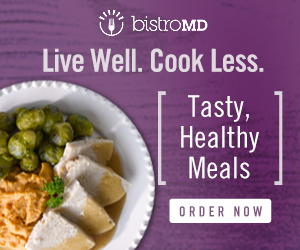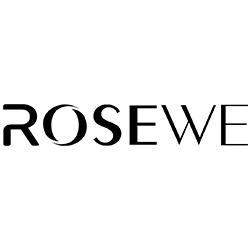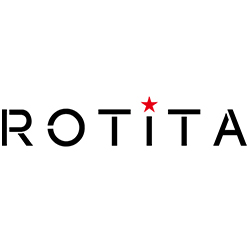The House of Prime Rib has an issue with its flagship meat: The iconic San Francisco restaurant admitted on Tuesday that some of its prime rib may be connected to reports of foodborne illness.
After a San Francisco Department of Public Health investigation last month and new reports swirling on social media this week, the more than 70-year-old restaurant said on Instagram that it “recently had an isolated issue with some of our prime rib which was immediately discovered and addressed.”
Owner Joe Betz told the Chronicle that his team has been trying to determine what might be causing diners to fall ill, though he said none of the employees who eat the prime rib every Saturday have gotten sick. The restaurant has been fielding calls from upset customers and refunding meals while more and more people left negative reviews on the House of Prime Rib’s Yelp page with detailed accounts of symptoms following in-person and takeout meals.
“We tried to isolate this and tried to isolate that. We really don’t have an answer but I think we’re getting closer to the problem, and maybe it’s the product,” Betz said. “We go through every possibility if there’s a problem.”
Word started spreading in April that there might be an issue at the House of Prime Rib, which has been booked solid since reopening for indoor dining. The health department received six complaints of foodborne illness and inspected the Van Ness Avenue business on April 7. At the time, though, it only found two “lower risk violations” that have since been fixed: that a meat grinder had food debris buildup, which was immediately cleaned and sanitized, and that the menu lacked an advisory warning that certain raw or undercooked foods such as meat or eggs may increase risks of foodborne illness. The inspection report also confirmed that no staffers had gotten sick.
But on Monday, the health department received four new complaints from a total of 12 people who alleged that they became ill and developed symptoms after eating the restaurant’s food. The unit counts multiple reports from people who live in the same home as one complaint.
“DPH is responding accordingly and will take further additional steps if epidemiological information suggests a link between the practices of the restaurant in question and the recent alleged food borne illness complaints,” the department said in a statement.
Betz said that a new inspection from the health department late on Tuesday did not find any violations; Department of Public Health Public Information Officer Veronica Vien confirmed this.
“We couldn’t find any direct causal link between the alleged food borne illnesses and the observations that we made today,” Vien said on Tuesday evening.
In April, people started posting to Yelp to report that they’d gotten sick after House of Prime Rib meals, including as recently as this weekend. Some members of the popular Bay Area Eats Facebook page alleged that they felt ill after takeout and dine-in meals there from April into early May, while others said they’d eaten the food without incident. Some said they got a refund after reaching out to the restaurant.
Betz confirmed that they refunded meals for people who claimed they got sick. He wasn’t sure how many he’d given, but it’s a continuation of a longtime philosophy at the restaurant.
“If somebody complains who is unhappy, we refund them,” Betz said.
And though Betz is trying to determine the source of any potential health issues, he worries about the unverified nature of social media posts.
“Not everybody who is putting something on Instagram had something to do with it. It’s a lot of copycats,” he said. “There is no way in the world that many people got sick. We would know it.”
Warren Ng, a San Francisco resident who’s been a regular at the House of Prime Rib for over two decades, said he, his wife and three children got sick after eating in the dining room on Mother’s Day last Sunday. His children woke up in the middle of the night with diarrhea, which continued into the next day. Ng said it hit him on Monday morning. They also dined out at a different restaurant for brunch early Sunday morning, Ng said.
Ng reported their symptoms to a House of Prime Rib general manager, who apologized and told him “it was an isolated incident and (that) they’re working on a solution with health officials,” Ng said. The restaurant refunded the family’s meal. Ng did not call the health department but submitted the report to crowdsourced website iwaspoisoned.com and posted a Yelp review.
“We’ve been going there for over 25 years. I know they’ll find the problem and get it fixed,” Ng said, “but it’s going to leave a scar.”
According to the Centers for Disease Control and Prevention, norovirus — which spreads through infected people and contaminated foods and surfaces — is the leading cause of foodborne illness. Common symptoms of foodborne diseases are nausea, vomiting, stomach cramps and diarrhea. The CDC recommends food businesses prevent the spread of norovirus by making sure that employees practice proper hand washing and avoid touching ready-to-eat foods, such as raw fruits and vegetables, with their bare hands before serving them.
Vien of the health department said the overall number of complaints of foodborne illness in San Francisco remains so low that they aren’t “anything considered to be significant.”
The same is true across the country: According to the Centers for Disease Control Prevention, there was a sharp decrease in norovirus outbreaks during the pandemic. From August 2020 to April 2021, there were 144 norovirus outbreaks reported in participating states compared to 1,033 outbreaks during the same time period the previous year. The number of outbreaks reported during the 2020-21 seasonal year fell below the range reported during the same period over the previous seven years, according to the CDC.
Given San Francisco’s numbers have been so low, Vien cautioned against reading into any early spikes — though states including Nebraska and Texas are reportedly seeing an increase in norovirus cases as COVID-19 restrictions loosen.
“We’re expecting to see a natural increase in complaints as they city reopens and folks are going back into restaurants,” Vien said.
This story has been updated with new comment from Betz and DPH.
Elena Kadvany is a San Francisco Chronicle staff writer. Email: elena.kadvany@sfchronicle.com. Twitter: @ekadvany


